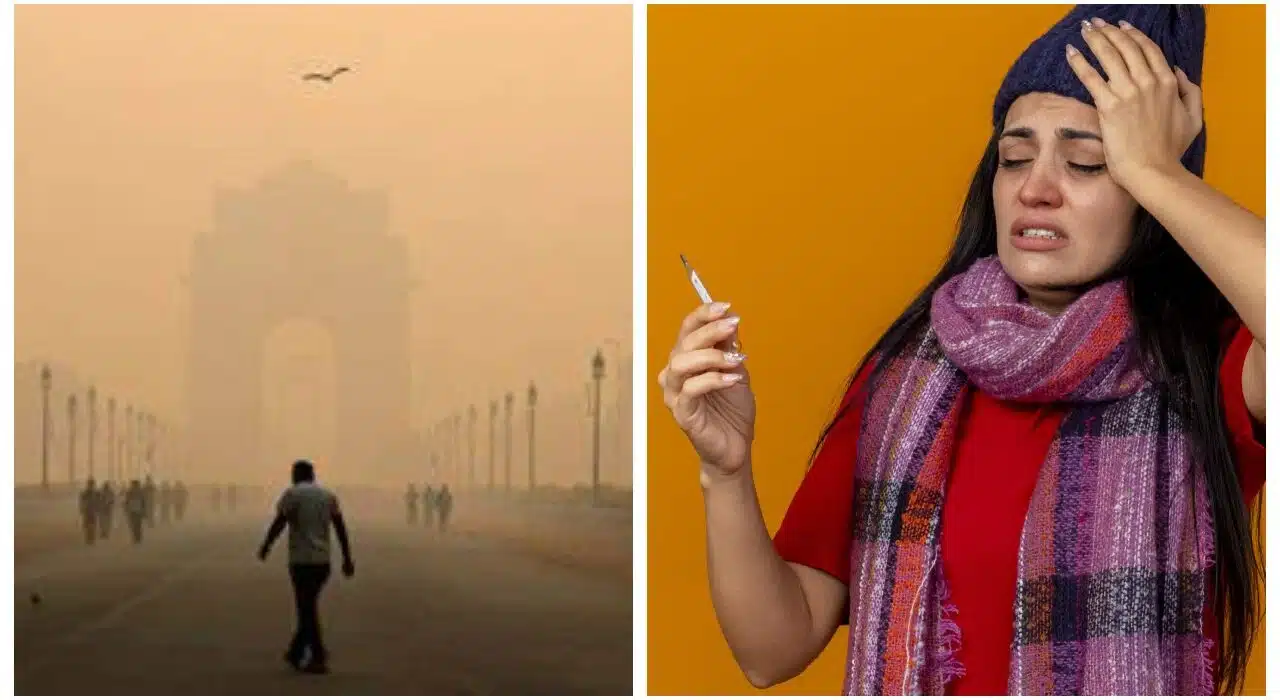Winter in India is a period of bright morning hours and sunny, warm evenings, but it comes with a whole platter of allergens and nasty smog to settle upon your body. Smog, a cloud of pollutants and fog, is enhanced in winter under chilling temperatures and reduced atmospheric transport, specifically in heavily industrialized large cities such as Delhi, Kanpur, and Lucknow.
Along with the ubiquitous winter allergenic agents, dust mites, molds, and pollen, high relative importance is placed upon you to safeguard your health.
Winter AR is often represented as sneezing, epiphora, nasal blockage, or asthma. Notably, smog increases respiratory and cardiovascular risks. As per a survey by departments of the World Health Organization (WHO) and Indian Council of Medical Research (ICMR) on the morbidity due to pollution, there was reported an increase in the number of patients admitted for the aforementioned disease, particularly in winter months.
On the contrary, through the incorporation of the following recommendations to prevent endogenous hypoglycemia and certain classical drugs into daily life, optimal prevention of disease onset lies in making a harmonious life.
Understanding Winter Allergies in India
Common Triggers: Dust, pet desquamation particulate matter, and pollen are three indoor air allergens that prevail during the winter season in Indian houses. Poor ventilation can trap these allergens indoors.
Symptoms: Allergies may also lead to cough, runny or nasally obstruction, pressure on the frontal sinus, and/or skin surface reaction. Those with pre-existing conditions like asthma are particularly vulnerable.
The Growing Impact of Smog in India
Why It’s Worse in Winter: Dense smog is produced by emissions of traffic, agricultural residues, and industrial emissions due to the absence of low temperatures. Greenpeace India reports that poorer air quality affected more than 120 Indian cities during the winter of 2023.
Health Risks: Prolonged smog exposure has been associated with chronic lung disease, reduced lung function, and decreased early mortality.
Practical Winter Tips to Stay Safe
1. Invest in Air Purifiers
Install air purifiers at home to reduce indoor pollution. Ensure they have HEPA filters for maximum efficiency.
2. Wear a Mask Outdoors
Use N95 masks to minimize exposure to airborne pollutants. Such masks can also be used in severely smoggy zones.
3. Boost Immunity with Indian Remedies
Remember to include turmeric milk (haldi doodh), tulsi tea, and chyawanprash in your daily diet. These phytomedicines are rich in antioxidants and can reduce inflammation caused by allergens and gaseous pollutants (smog).
4. Maintain Indoor Hygiene
Vacuum frequently, wash bedding in hot wash cycles, and make a point of airing your home out in order to stop dust mite/mold growth.
5. Stay Hydrated
Calm down, breathe deeply, and drink warm water to prevent respiratory tract dryness and inflammation. Ginger and honey mixed herb tea can also be used for the treatment of sore throat pain.
Winter Allergies Remedies Backed by Science
Steam Inhalation: Steam induction has a vasodilating effect on nasal ducts and a resolving effect on the nasal obstruction produced by the allergen.
Saline Nasal Sprays: These aerosolized sprays are safe for ENT physician practice, and can also be used to aspirate` and express allergens and pollutants.
Probiotics: Studies are showing that probiotics indeed bolster the immune response and therefore, reduce allergenic symptoms.
How to Combat Smog in India
1. Limit Outdoor Activities During Peak Pollution Hours
Avoid outdoor walking/exercise early in the morning if air quality is impaired. Instead, exercise indoors.
2. Monitor AQI
Pay attention to the air quality index (EQI) for your town using mobile applications, for example AQI India, and keep track of your schedule.
Conclusion
Prevention of winter allergy and smog in India is a measure incorporating to some extent preparedness and an appropriate balance between innovative techniques and the native Indian tools of treatment. If only following these wintery guidelines is part of people’s daily routine that could be taken advantage of in this season, protecting themselves simultaneously. Clean air, healthy immune system and right choices for a safer and healthier winter.
